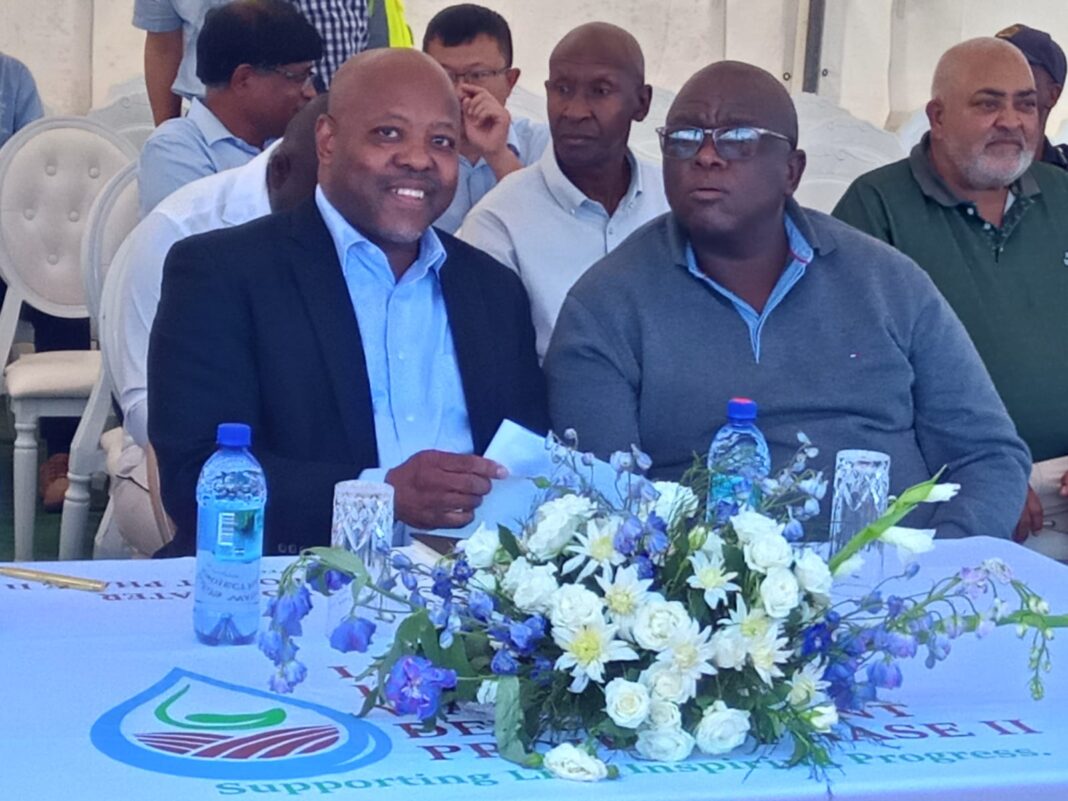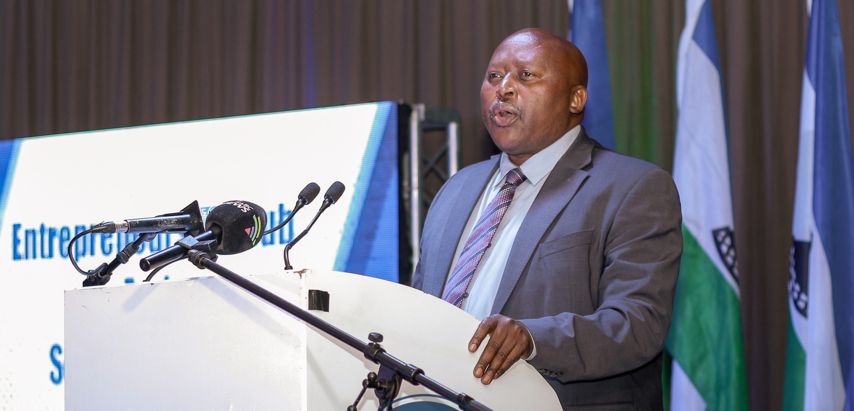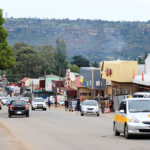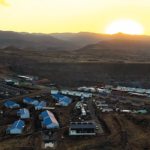Libuseng Molato
About 60,000 residents of Hlotse and Maputsoe in the Leribe district are poised to gain access to clean water as the construction of a bulk water transmission network is set to begin.
The water access for the area codenamed Zone 2 and Zone 3 will be facilitated by the second phase of the Lesotho Lowlands Water Development Project (LLWDP-II), scheduled for completion by 2027.
Apart from the two areas, the LLWDP-II is also concerned with zones 6 & 7 in Mohale’s Hoek and Mafeteng.
The project encompasses the construction of various bulk water infrastructure components, including intake structures, pump stations, raw water mains, water treatment plants, service reservoirs, transmission lines, and booster pumps in the targeted areas.
These efforts will be complemented by enhancements to distribution systems and the implementation of low-scale sanitation and hygiene measures to elevate service delivery standards.
The project enjoys support from key stakeholders, including the World Bank, European Union, European Investment Bank, and the government of Lesotho, with funding exceeding M4 billion.
Speaking at the recent sod-turning of the bulk water transmission network construction, the project manager Mathealira Lerotholi said the government started to supply water from 2002-2015 under phase one Metolong Dam and Water Supply Programme (MDWSP).
The programme increased water supply to urban and peri-urban areas in Maseru and the neighbouring towns of Roma, Morija, Mazenod, and Teyateyaneng.
Lerotholi said the phase II construction will commence in March this year.
“Our water is our treasure, hence we are the first hydro vision country, we are accountable for every drop and we are looking forward to the government to get a specific supporting department that will only focus on the usage of water and projects like this,” he said.
On behalf of the World Bank, Palesa Mokorosi said the current water supply crisis in Maputsoe prompted the government to hand over eight boreholes in January 2022 as an interim solution under the project.
She said the bank intends to intensify its efforts in supporting client countries to build resilience to climate related shocks and that a more secure infrastructure platform is required to sustain the well-being and economic livelihood of Basotho to reduce vulnerability to water related disasters.
On his part, the Minister of Natural Resources, Mohlomi Moleko said that the two construction companies in charge for the project are UNIK Construction and Engineering (Pty) Ltd and the Qingjian Group (Pty) ltd.
“About 1 450 Basotho will get jobs, and I commanded the project management to ensure that the construction companies hire the locals who qualify. This will create sense of ownership and for the community to take good care of the infrastructure,” Moleko said.
Summary
- About 60,000 residents of Hlotse and Maputsoe in the Leribe district are poised to gain access to clean water as the construction of a bulk water transmission network is set to begin.
- “Our water is our treasure, hence we are the first hydro vision country, we are accountable for every drop and we are looking forward to the government to get a specific supporting department that will only focus on the usage of water and projects like this,” he said.
- She said the bank intends to intensify its efforts in supporting client countries to build resilience to climate related shocks and that a more secure infrastructure platform is required to sustain the well-being and economic livelihood of Basotho to reduce vulnerability to water related disasters.

Your Trusted Source for News and Insights in Lesotho!
At Newsday Media, we are passionate about delivering accurate, timely, and engaging news and multimedia content to our diverse audience. Founded with the vision of revolutionizing the media landscape in Lesotho, we have grown into a leading hybrid media company that blends traditional journalism with innovative digital platforms.








